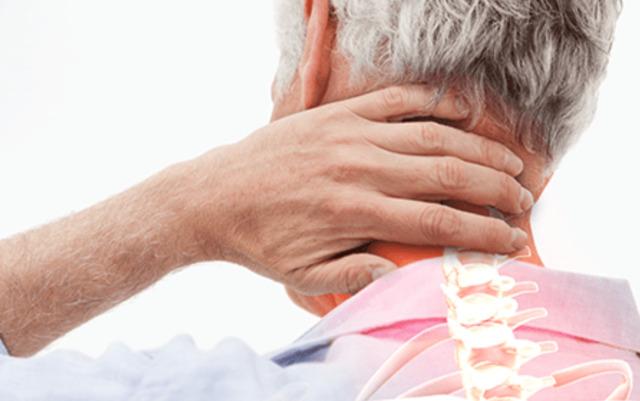Neck pain is usually mild or moderate and can be treated with methods such as rest, physical therapy, warm-up exercises and posture correction. However, if neck pain is severe or persists for a long time, it is important to consult a healthcare professional because it may be a sign of serious illness. Neck pain is also among the symptoms of diseases such as heart attack, meningitis and tumor. For this reason, if you are experiencing severe neck pain, it would be beneficial to go to the hospital.
DISEASES THAT CAUSE NECK PAIN
Muscle problems: Neck pain may occur in conditions such as stretching, damage or strain of the muscles or connective tissues in the neck as a result of adverse movements or incorrect posture.
Trauma: Neck pain may occur in physical trauma to the neck area, depending on the degree of damage to the connective tissues and muscles.
Hypertension: If the person complains of pain starting from the nape of the neck and progressing to the top of the head, feels the need to massage the pain area, and complains of ringing in the ears along with the pain, high blood pressure should be suspected. The person’s blood pressure should be monitored and changes should be monitored. If high blood pressure is detected, an opinion from a cardiologist and nephrologist must be obtained. Wasting time can lead to undesirable consequences such as stroke and death due to brain hemorrhage.
Heart attack: A heart attack occurs when adequate circulatory support is not provided to the heart muscle tissue. Neck pain can be seen as a clinical sign of heart attack; However, it should not be ignored when a heart attack is accompanied by other symptoms such as arm and jaw pain and shortness of breath.
Meningitis: There are membranes called meninges around the brain and spinal cord tissues. These membranes; It has different functions such as supporting, nourishing and protecting nerve tissues. Inflammation of the meningeal membranes due to infection for various reasons is called meningitis. In the case of meningitis, the person may develop limitation of neck movements, neck stiffness and severe neck pain due to inflammation in the brain and spinal cord tissues.
Rheumatic diseases: Complaints of neck pain may occur due to rheumatologically based diseases such as joint rheumatism.
Neurological diseases: Neck pain is an important symptom in neurological diseases that cause damage to the nerve tissues in the spinal cord or put pressure on the nerves.
Fibromyalgia: In fibromyalgia disease, which progresses with painful sensitivity at certain anatomical points throughout the body, neck pain may occur as a result of the neck being affected.
Spine problems: Neck pain may develop due to pressure on the spinal cord and related nerves in cases such as slipping of the spinal discs, damage to the vertebral joints, or herniation of the intervertebral discs.
Infections: Neck pain may occur in infections that develop in various tissues in the neck area or in abscesses that occur due to deep neck infections.
Tumors: Tumors that compress the nerve or vascular structures in the nape area may show symptoms as neck pain.

OTHER DANGEROUS SYMPTOMS BESIDE NECK PAIN
If certain complaints accompany neck pain, more serious health problems should be suspected and an evaluation should be made by a specialist physician. The following symptoms, if accompanied by neck pain, may be signs of certain diseases:
- Fire,
- Headache,
- Nausea and vomiting,
- Swelling or mass felt in the nape of the neck,
- Difficulty swallowing or speaking,
- Weakness, loss of feeling in arms or legs,
- Limitation in neck movements,
- urinary incontinence,
- Pain radiating to the arm, chest or jaw.

WHAT CAN BE DONE TO RELIEVE NECK PAIN?
In order to relieve neck pain, it is necessary to determine the cause of the discomfort. Depending on the diagnosis made, specific treatments may be applied. However, especially in cases of neck pain that develops due to musculoskeletal problems, it is possible to eliminate the complaints to a large extent with some measures that can be applied at home. In this regard, the following methods may be useful in relieving neck pain:
- Applying a warm compress to the pain area,
- If there is strain in the muscles or ligaments, use physical therapy methods such as stretching and pulling exercises,
- Using pain-relieving medications or muscle relaxant topical creams,
- Avoiding repetitive movements that will damage the neck anatomy, correcting the body posture,
- not smoking,
- Strengthening the muscles and connective tissues in the neck area with the help of regular exercise.

